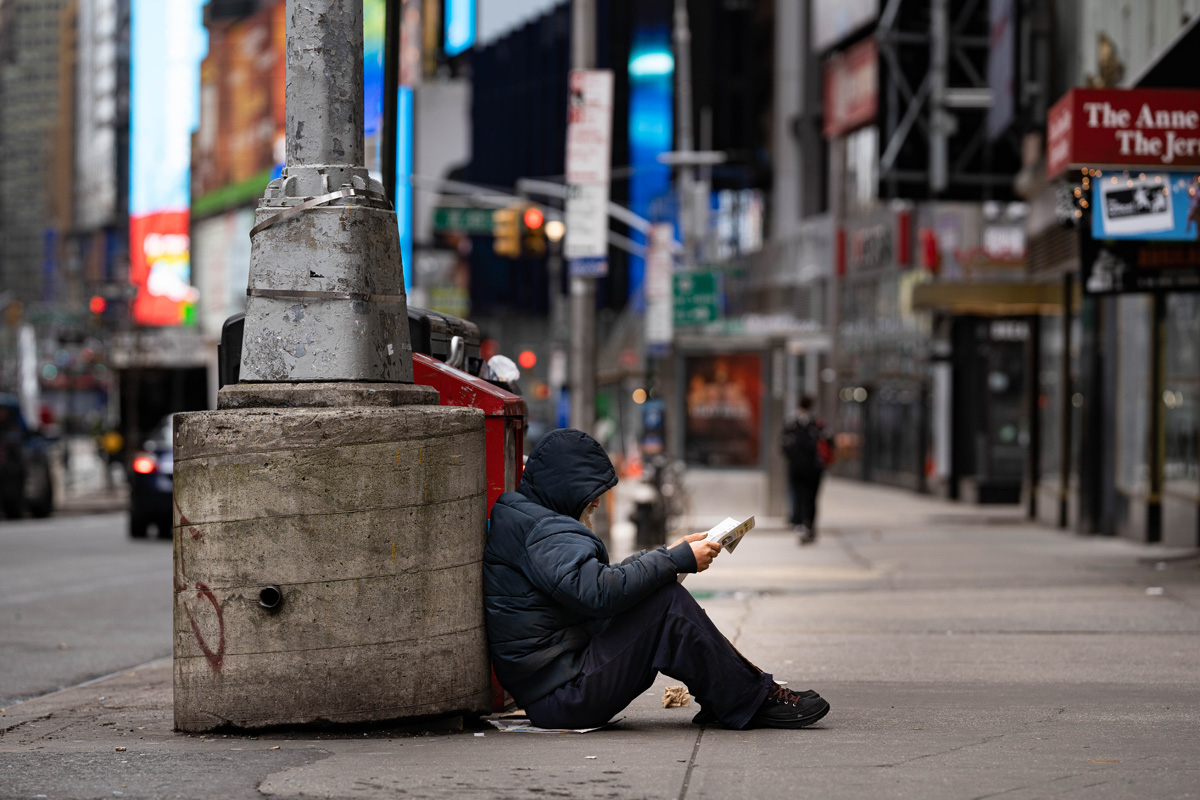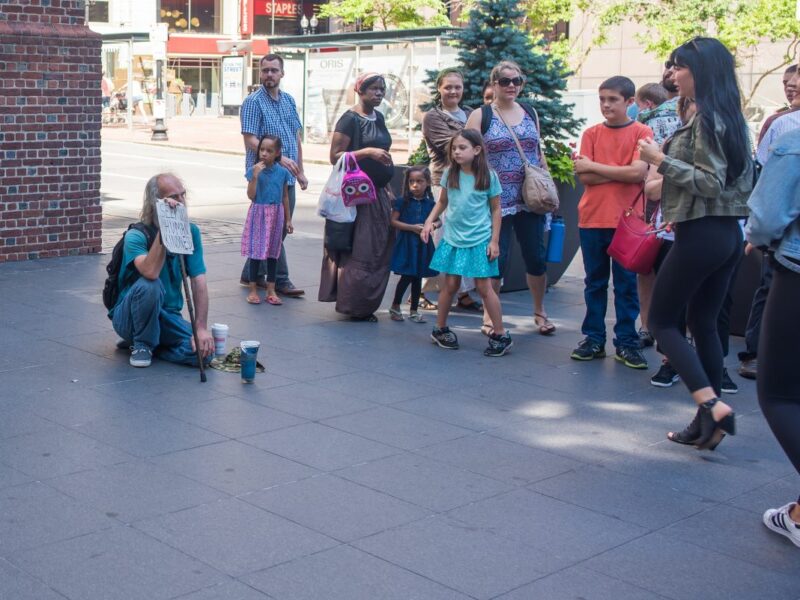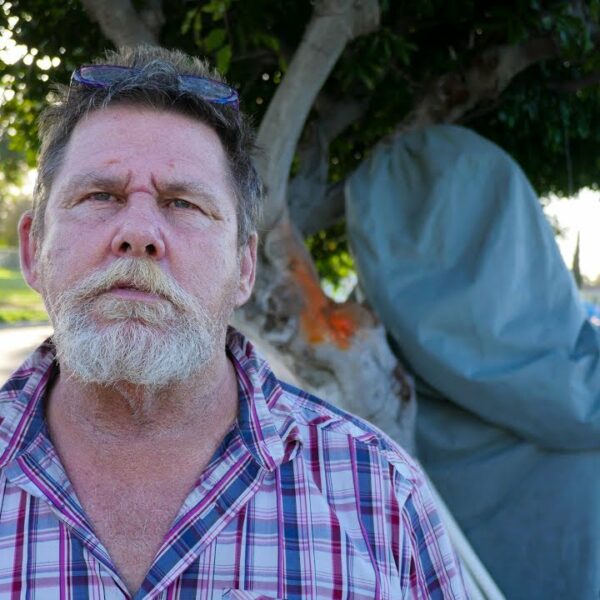“They don’t want us here but we’ve got to live somewhere,” states homeless shelter resident Wayne Jenkins in a live interview with CBS New York.
His deflated stare as he gazes into the camera is all too telling. The only thing worse than despair is an inkling of hope that fizzles just as a dream is about to be realized. And while Wayne Jenkins wallows in the misery of being quietly shuffled out of a NYC hotel right when he seemed on the brink of obtaining permanent housing, callous neighborhood residents see this fate as cause for celebration.
“We’re happy that they’re gone,” admits one long-term resident at the Washington Jefferson Hotel on West 51st Street in the Hell’s Kitchen section of New York City. He might be saying that now, but such was not always the case.
During Quarantine, Providing Housing for The Homeless Population Was A Lucrative Business for An Otherwise Dying Industry.
At a time when the hospitality business was buckling under the weight of the nationwide shutdown, hotels like the one mentioned above in New York City and others in California were offered an unexpected lifeline in the form of housing the homeless population.
As sheltering in place became a top priority, FEMA offered up a generous 75% reimbursement to participating hotels. Plus, the remainder was often covered by government grants.
Many of these programs featured meals and other pricey hotel services. In fact, the interim Director of the Department of Homelessness and Supportive Housing, Abigail Stewart-Kahn, told reporters that they were shelling out more than $260 per night, making Project Roomkey, and other comparable programs “unsustainable” in her opinion.
It’s really important to point out that because of the pandemic, these hotel rooms would have otherwise been empty. This would have resulted in furloughed staff and rooms offered at astronomically low rates. Some hotels might have had to simply close their doors forever.
It’s a bittersweet irony to learn that it was homeless people that saved their business in a time of peril. In response, hotel owners are turning them back to the street in favor of what they consider “more prestigious” clientele.
In April, at the height of Coronavirus coverage, it became apparent that there were hundreds of thousands (and probably millions) of people in the USA with nowhere to shelter in place. With the health and welfare of the general public on the line, professionals acted quickly, putting plans in motion over a course of months.
Congress contributed $4 billion in homeless assistance and another $5 billion was set aside for housing and community development. At the time, President of the National Alliance to End Homelessness Nan Roman, made the following statement:
“I think it definitely could lead to longer-term solutions.”
And across the nation, from the East Coast to the West Coast, health advocates, housing advocates, lawmakers, and politicians all echoed those sentiments. In June, it felt like a silver lining had emerged from that perilous Coronavirus cloud. But it was really just another delayed storm drenching us in our naiveté.
Now, with a COVID winter closing in and 30-40 million renters vulnerable to eviction, thousands of hopeful homeless people have already been discharged from their hotel rooms.
Where did they wind up, you ask? We know that in the California area, at least 15 of them are already dead and 84% of them continue to live unhoused.
Different Regions. Same Story.
We claim to all be in this together. But across our nation, NIMBY’s gather to protest hotel programs like Project Roomkey. Armed with minds full of stereotypes, they point accusatory fingers and threaten to sue entire cities. For this reason alone:
- Homeless people are being kicked out of hotels in San Francisco
- They’re getting the boot in Fort Lauderdale
- They’re being evacuated in New York City
- And they’re being refused in New Orleans
This is not just a United States dilemma. The same predicament is happening in the UK. In all of these cases, authorities claim to be relocating people but refuse to give specifics regarding where. Data suggests they are being “relocated” to prisons, shelters, tents, RV’s and encampments.
Exit Strategy: What’s Next for Housing and Homeless Advocates?
Sadly, it seems that in this instance, the bottom line really was the bottom line for many participating hotel owners. However, it’s important to embrace the positive aspect of this story as well.
In California alone, approximately 16% of participants from the homeless community were permanently housed. That is 16% more than would have been housed if these programs had not come to fruition.
We also learned that when the general public welfare is threatened, politicians scramble and find solutions (however short-term) to problems that have plagued our nation for centuries. What this means is that if we keep applying pressure and reminding the general public that housing is healthcare, we can work toward creating non-punitive solutions to the homeless crisis.
*Of Note: In many of the instances where hotels turned their backs on the homeless community, it was in response to the cries of NIMBY neighbors, many of whom have been raised to believe that homelessness happens as the result of a personality flaw. This is why it’s so important to keep the general public educated on the true causes of homelessness, many of which are the result of wealth inequality – not undesirable personal characteristics.
Talk to your representatives today about their plans to find short-term and long-term housing solutions for all.












